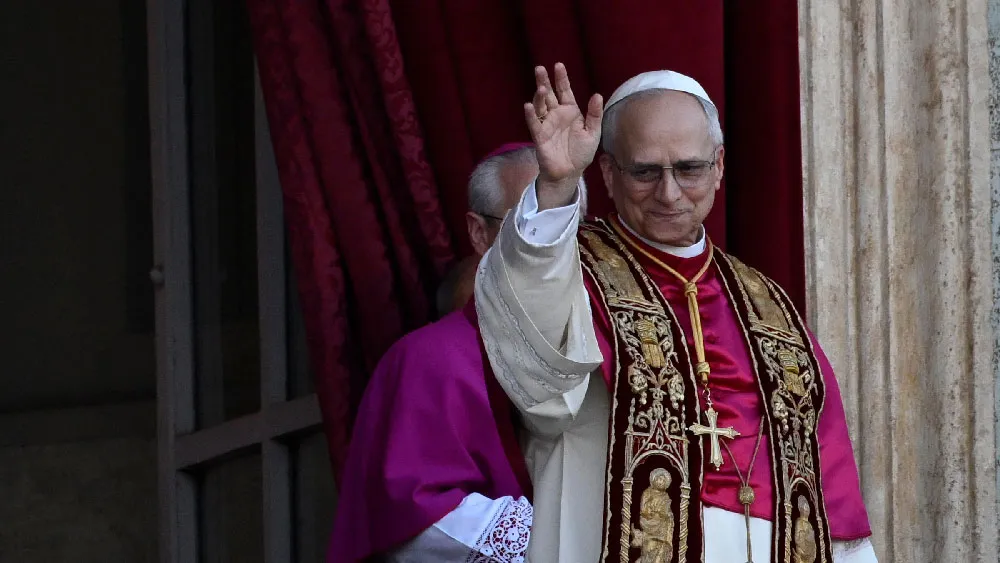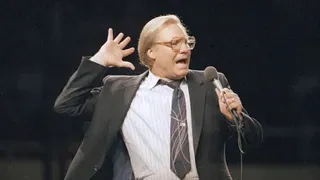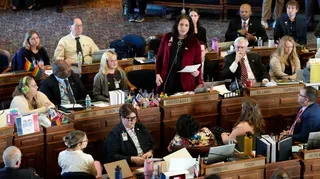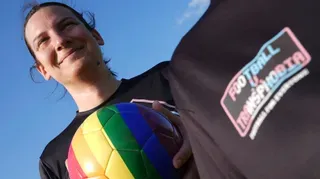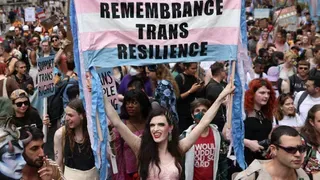April 27, 2008
Harvard forum examines role of LGBT elected officials
Michael Wood READ TIME: 5 MIN.
An April 22 Harvard forum aimed at examining the viability of LGBT political candidates veered off-topic into a broader discussion of the role of LGBT officials in public life, as one Harvard student questioned whether openly gay elected officials weren't better off leaving gay advocacy to straight allies and another suggested that some local openly gay electeds weren't visible enough.
Speakers at the forum, which was sponsored by the Harvard College LGBT Political Coalition, included former state senator Jarrett Barrios, Rep. Liz Malia (D-Boston), Connecticut state Rep. Jason Bartlett (D-Bethel), AIDS Action Committee Director of Public Relations and External Affairs Diego Sanchez, and Democratic fundraiser Nancy Korman.
Clayton Brooks, a Harvard student and moderator of the discussion, asked the panel whether it was more important to have openly LGBT lawmakers advocating on behalf of the LGBT community or to have straight allies speak out on LGBT issues. He said he imagined that LGBT lawmakers would be reticent about focusing the majority of their political work on LGBT advocacy.
"It seems to me, and it may be wrong, but it seems to me that many of you may be hesitant to be so active in promoting LGBT rights because you don't want to be seen as that gay politician that supports gay rights. You want to be active on a lot of other things. ... Would it be better to have straight allies supporting the cause of LGBT rights as opposed to necessarily LGBT people themselves?" asked Brooks.
Barrios, an openly gay man who advocated strongly for LGBT issues in the legislature, said that it was crucial for LGBT people to take the lead on the community's issues.
"What does it say when a gay person who's grown up their lives in the closet, afraid to say what they are, finally comes out, runs for office, and then runs from the issue? It reaffirms everything in straight people's minds about our lack of self esteem and our closeted-ness and our inability to speak up for ourselves, which is why it is when you poll Americans, Americans who know gay people, and they still don't support ENDA, for example, the Employment Non-Discrimination Act, 'Oh, I didn't realize they were discriminated against,' is what they say, 'because my gay friends never told me, or my gay family member never said it was an issue,'" said Barrios. "This is as much an issue for gay people with their family and friends in the larger political sphere as it is for elected gay people standing up for these people in the corridors of power."
Sanchez said that while it was crucial to have support from non-LGBT allies, it is paramount that LGBT people advocate for themselves.
"You have to have people who speak for their own lives. ... If [Barrios and Malia] didn't stand I would have been heartbroken," said Sanchez.
Steve Cohen, a student at Harvard's Kennedy School of Government, told the lawmakers on the panel that he felt it was their responsibility to serve as national role models to LGBT people who want to run for political office. While Barrios and Malia were highly visible in the media coverage about the debate on same-sex civil marriage in Massachusetts, and Bartlett's decision to come out last February garnered national attention, Cohen said that he was unaware that there were any local openly LGBT elected officials.
"I don't see a lot of role models. I didn't even know about you guys. I've heard Jarrett's name because I go to Harvard, so he's been around. ... I'm so glad to meet you, but I've never seen you," said Cohen. Barrios is a Harvard alum.
Malia said that while she has worked to be visible in her work on behalf of the community, it is difficult to balance that visibility with her work in the legislature.
"I was a gay Pride grand marshal last year, and the year before that I was the grand marshal of Youth Pride, and I've tried to do things like that when people have asked me to do it, but I also work in a fulltime legislature, and it's very hard for me to set aside the time to basically work that issue. ... When the marriage debate was going on there was a lot of coverage. There was coverage by the straight press. A number of us gave some speeches. A lot of people knew about that at the time," said Malia. "But the question I throw back to you is, how do we do that and do it in a way that's effective?"
Bartlett said that as a lawmaker his first responsibility is to his constituents, not to the broader gay community.
"Now, do I know everything about the gay marriage bill that we have in the state of Connecticut? No. Am I going to look at it next year and know it and lobby it and work it? Yes," said Bartlett. "But in my district, for me to get re-elected, my bonding issue's more important, my earmarks are more important, my environmental record's more important. I represent my district. I'm not running to be the black gay legislator of Connecticut. I'm running to represent my district, period."
Bartlett described his own entry into politics as a campaign manager for a special election campaign for the New Haven state Senate seat in the early '90s. While he found no shortage of gay people in politics, none of them were out.
"It was for two African Americans, guys, running in the city of New Haven, and they were both gay and they were both closeted. And I was the campaign manager, I was a black gay guy running one campaign, and the other guy's campaign manager was a black gay guy who I met a few weeks into the campaign at a gay bar. So we figured that out. So it was interesting," said Bartlett.
The opposing candidate, Charles Allen, won but stayed in the closet during his time in the Senate. He came out in 2004 and passed away this past February.
Bartlett, who has two children, said that he made two failed bids for state representative in 2002 and 2004 before succeeding in 2006. In the first two races he said opponents sent mailings that made vague suggestions he was gay, but the issue never became an overt part of the campaign. When he won in 2006 he decided that he wanted to come out to be honest with his constituents and ensure that no opponent could use his sexuality against him. Working with the Victory Fund, which promotes the election of LGBT people to public office across the country, he developed a message to ensure that his constituents focus on his track record rather than on his sexuality.
"The messaging to my district is, I get the job done. I have a record. These are the things I care about," said Bartlett.
Korman said when it comes to viability, one of the key factors for any candidate, including LGBT candidates, is money. Korman, who served as Congressman Barney Frank's fundraising chair during the 1980s, said that in order to raise enough money to sustain a campaign candidates must reach out to other communities.
"Money is the key to getting elected, and it's the key to a lot of other things, so clearly you have to create alliances. You cross sexual lines, you cross orientation lines, you cross color lines, or you're not going to have enough money to do anything," said Korman.
Michael Wood is a contributor and Editorial Assistant for EDGE Publications.
